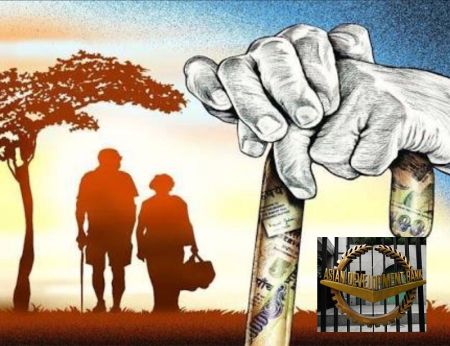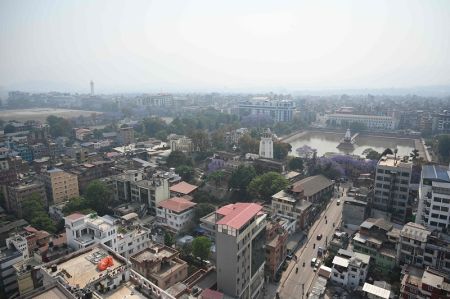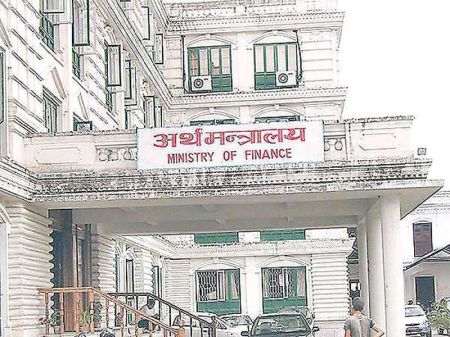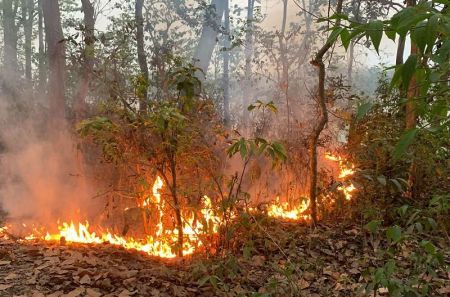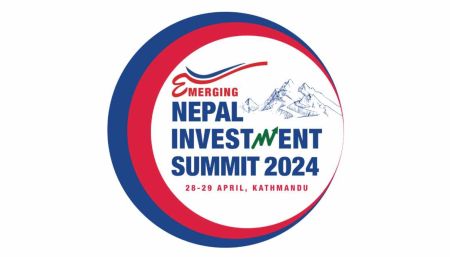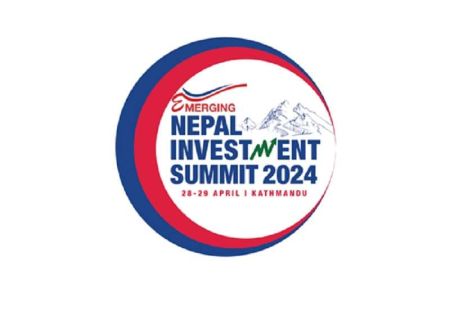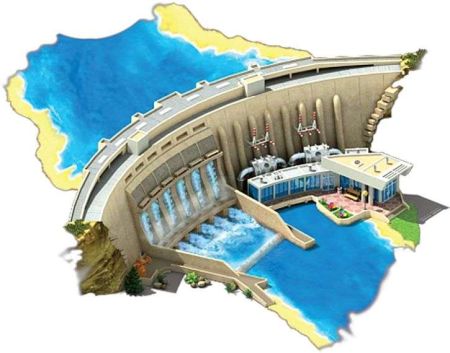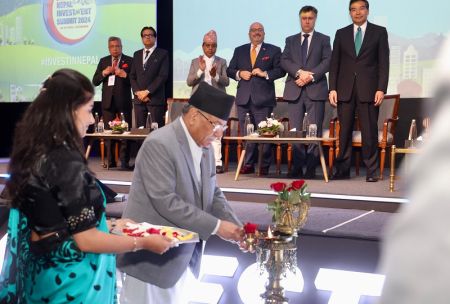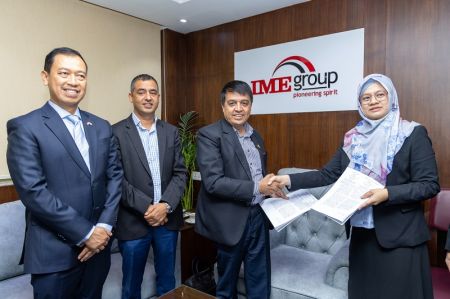.jpg)
--By Achyut Wagle
The chieftains of major four political parties -- United CPN (Maoist), Nepali Congress, CPN-UML and Madhesi Morcha -- appear contended and relaxed for being able to install the Chief Justice of the Supreme Court of Nepal, Khil Raj Regmi as the head of the new interim ‘election’ government. The questions related to constitutionality and conflict of interests between executive and judicial organs of the country, since the same person effectively heads the both, do yet remain unanswered.
There are a number of cases under consideration in the court of law seeking appropriate interpretation of relevant constitutional provisions on it. Worst of all, the very first recommendation for constitutional appointment made by the government headed by the Chief Justice himself was returned by the President for ‘further constitutional explanation.’ This controversy surrounding the appointment of Chief and other Commissioners in the Election Commission indeed gives some indication to the modus operandi of the new government.
More than that, the practice of extra-constitutional imposition of the political vested interests by the ‘High Level Political Mechanism’ practically makes the Regmi government a faceless scarecrow. Apparently, all the new ministers got appointed on a shared quota-basis amongst the four political parties involved. And people are told to believe that it is politically neutral coalition government. This is a total farce. Yet, the whole coalition looks like a coalition game in economics game theory where there is no easy ‘core’ or equitable distribution of pay-offs among the parties, but still they are clinging to it.
The much touted-about political consensus appears a total mockery as there are reckonable political forces out of this ‘all party’ mechanism; disgruntled and determined to create any obstacle possible if they are not listened to any time soon. Among them, the break-away faction of the Maoists party (CPN-Maoist headed by Mohan Baidya), all three parties of former panchas (Rastriya Prajatantra Party-RPP, Rastriya Janashakti Party and RPP Nepal) and Madhesi Janadhikar Forum headed by Upendra Yadav are some of those that deserve consideration to include in the so called all party mechanism.
But absolute inflexibility and ungenerous attitude of the four parties to accommodate or address the concerns of these disgruntled political outfits in some way or the other raises further apprehensions about the possibility of polls any time sooner. And, UCPN (M) Chairman Pushpa Kamal Dahal’s over ambitious plan of hastening to polls within June this year smells rat in his design.
True that Nepali people want to go for ballot sooner than later. But, the polls are not instant soup-making recipe. The national polls are massive management nightmare. Still, several legal arrangements are needed to be made to enable the Election Commission to hold putatively free and fair polls. The budgetary arrangement is equally difficult. No doubt, there are several donors ready to dole out money for elections here, but they also need adequate time to process our requests through their respective home governments and bureaucracies. Our own budget for the current fiscal year needs recasting if the polls were to be held within this fiscal year, say June.
Logistics and stationery arrangements including the designing and printing of ballot papers, transportation of polling boxes and machines etc. involve a substantial amount of time and human resources. Security mobilization is perhaps going to be the most extensive and exhaustive affair.
On top of it, controlling the violence carried-out by some fringe and purportedly political outfits, active in different part of the country, remains crucial. Whether the new government of bureaucrats and with limited technical mandate has authority to negotiate peace or, if required, will-power to obliterate them by combing operation is critical of all questions to make polls a success.
Despite these all obstacles evident than ever before, why Dahal is insistent on June date? Is he so keen to reestablish the democratic process sooner, which for so long has been derailed mainly because of him? There are suggestions that June is the month when common people hardly can find time to go to polls due to their seasonal engagement in cultivation as monsoon just begins. And, only those who come to vote are the committed party cadres of any party. Implicitly, the winning chance of UCPN (M) is likely to increase in such a scenario. Also, if polls are scheduled in such a short notice, number of international election observers arriving to monitor the polls is likely to be far less, giving room to rigging for the forces with organised and violent youth wings like Youth Communist League (YCL) of the UCPN (M), or similar outfit of CPN-UML. These arguments about Dahal’s discrete planning are not unfounded since Dahal has been able to fill the key state positions by the people highly loyal or made so by several machinations, including the head of the election government, Regmi. All in all, Dahal wants absolute majority in new Constituent Assembly (CA) at any cost, that too without recognizing the splinted off Baidya faction and yet, legitimizing all his political moves making Nepali Congress and CPN-UML mere mute witnesses, compelled to sign on the margins of his political contract papers.
Despite all maneuvers and scrambling of Dahal and his party, polls within June still look a distant possibility. And the fact that seven years have passed without any significant achievement towards ending the political transition, there is no point going so hastily just to cover a few months time without proper preparations. The most rational expectation would be to hold the polls in November with adequate perseverance and nuanced management of time and resources.
What if even the Regmi government couldn’t hold the polls for all those reasons Dr. Baburam Bhattarai government failed to meet the two deadlines of November 2012 and April 2013? Interestingly, the political parties who signed the 11-point deal to enthrone Regmi perhaps have no clue about the possible next step if he failed to deliver the polls and choose to remain in power in whatever pretext.
Even if the elections are held, regardless when, as the fact of matter remains, outcomes of these new CA polls would take Nepal only to a status quo of April 10, 2008, the day when the first election for the CA was held. Despite a number of extensions, that CA during its four years in existence had failed to make any headway in drafting a new constitution. All major political parties represented in that CA failed to reach a consensus to extend its tenure for the fourth time on 27th May, 2012. If one remembers it correctly, it was the Supreme Court verdict from a bench of justices including Regmi that had barred the extension of the CA term.
Without addressing the very causes which made the last CA dysfunctional and ultimately dead, the new CA, even if it is instituted by coming November -- the earliest possibility, would not be able to deliver new federal constitution as expected by the people. The politics has become so messy with rising ethnic hatred, unrealistic expectations of regionalism and culture of using violence to capitulate the authority to meet all implausible demands of divisive and sectarian nature.
No political party seems to be prepared to go to the polls with a concrete frame of the constitution they are planning to draft if they got elected. This in fact should have been the main basis of each party’s CA election manifesto. It is because, people can rationalize their expectations before deciding whom to vote and what to expect when the CA takes shape. Even smaller parties with extreme demands may come up with their respective propositions and their issues could be addressed on the strength of votes they secure. It would have made things far easier to promulgate the new constitution once drafted. But the so called big parties are also not prepared to come up with any clarity on these crucial matters for the obvious ulterior motives of fishing in the rough waters. Such ill intentions are more ingrained in those parties who are inclined to one party dictatorship under the veil of democratic mandate. People again have to vote on the basis of the guesswork without knowing their distinct position on constitution drafting process.
In fact, Election Commission’s code of conduct can regulate such things by making every party mandatory to go to the polls with complete shape of their proposed constitution. But whether the Commission will have that guts and vision is an unanswered question here.
Finally, if the parties do not plan on how they want to proceed once the CA elections are held, things are not going to change for the better in Nepal. Even if one party gets clear majority in CA, it will be impossible to move ahead without taking on board all big or small political players along both to draft and promulgate the new constitution. Therefore, this process is better if it began now. Otherwise, like in the past, we will be back to square one again after spending many valuable years for the same cause. The whole exercise of this CA election would also automatically go down the drain.






